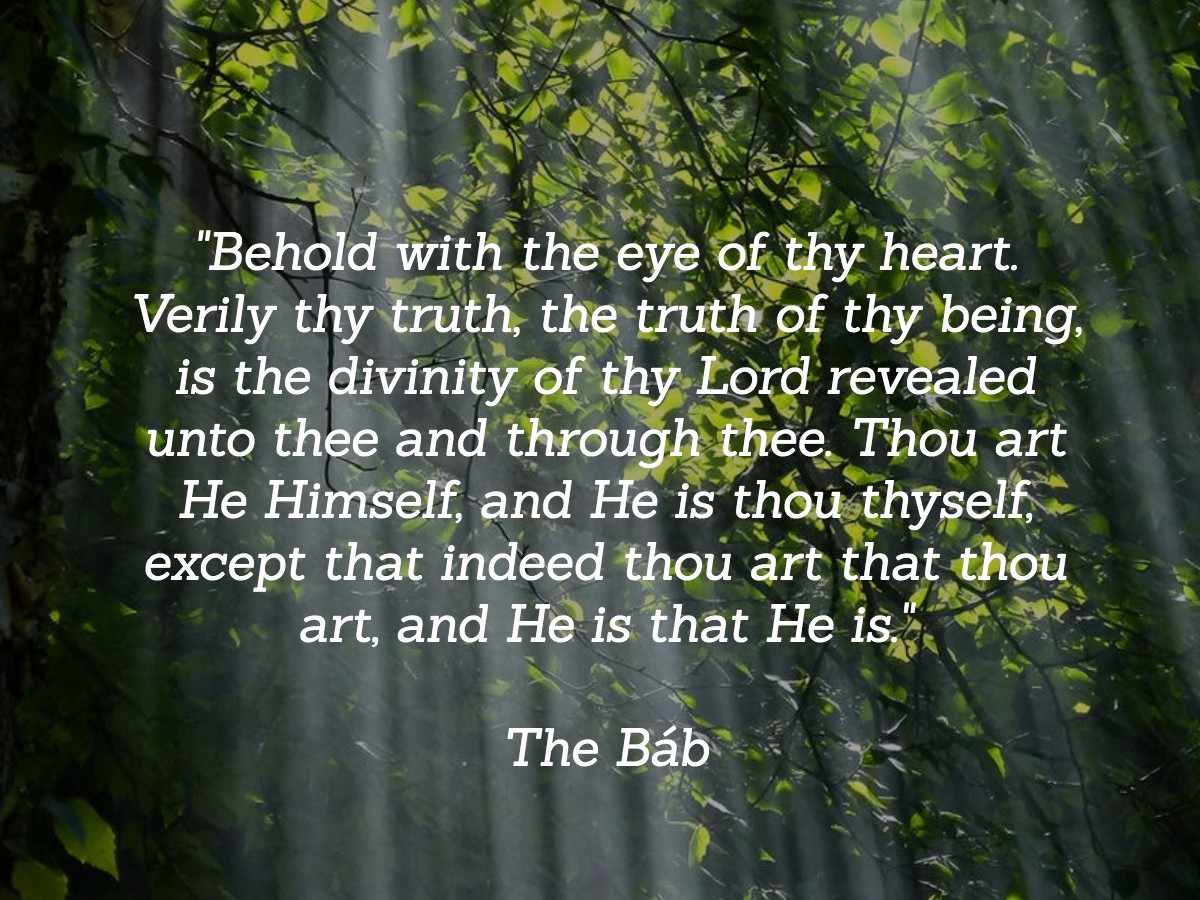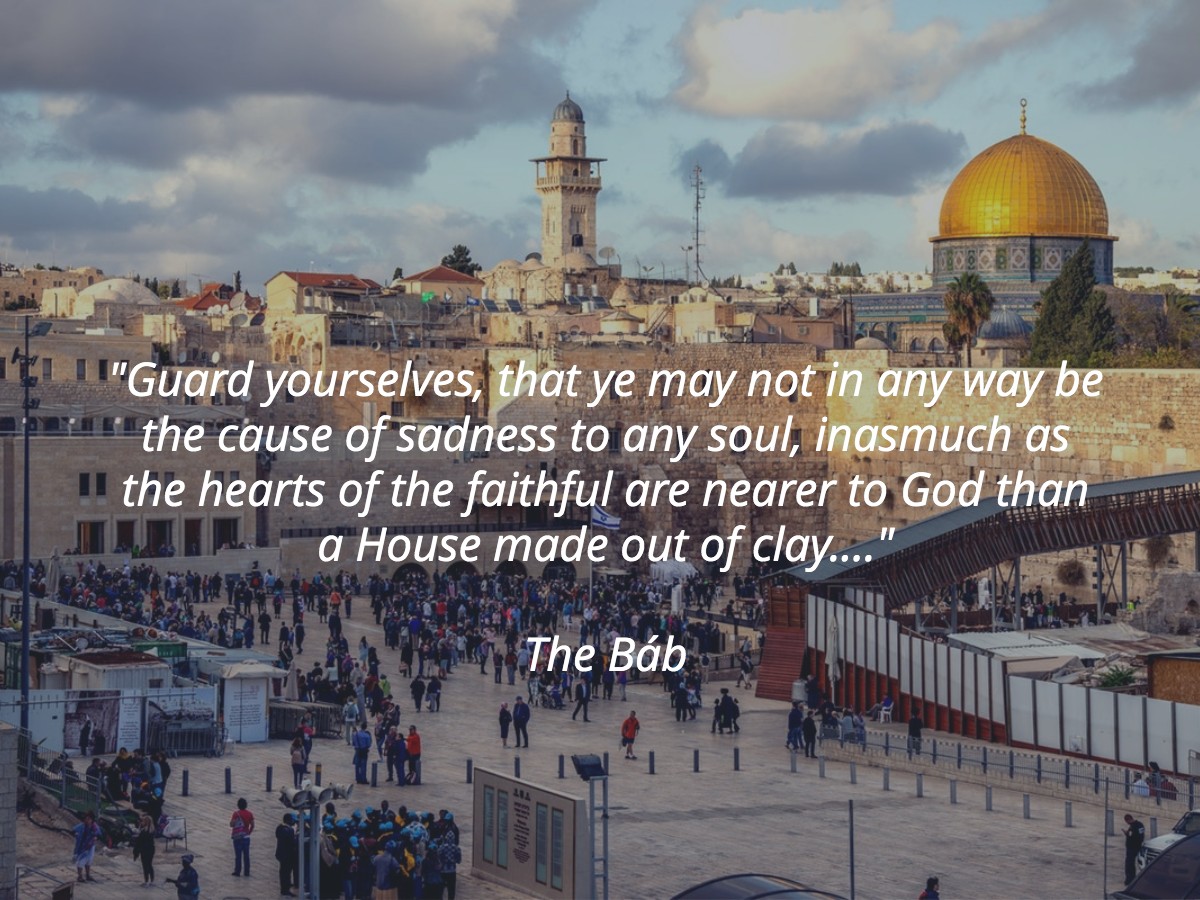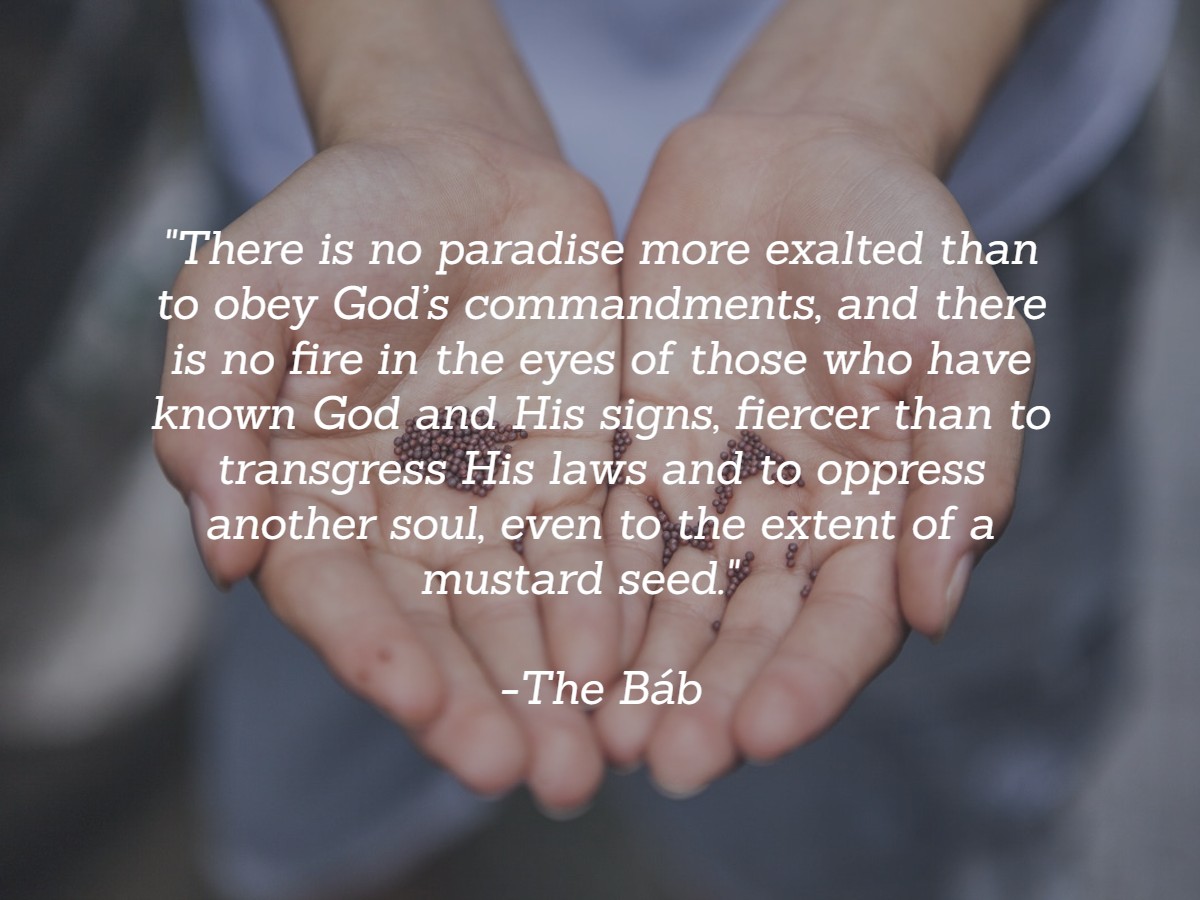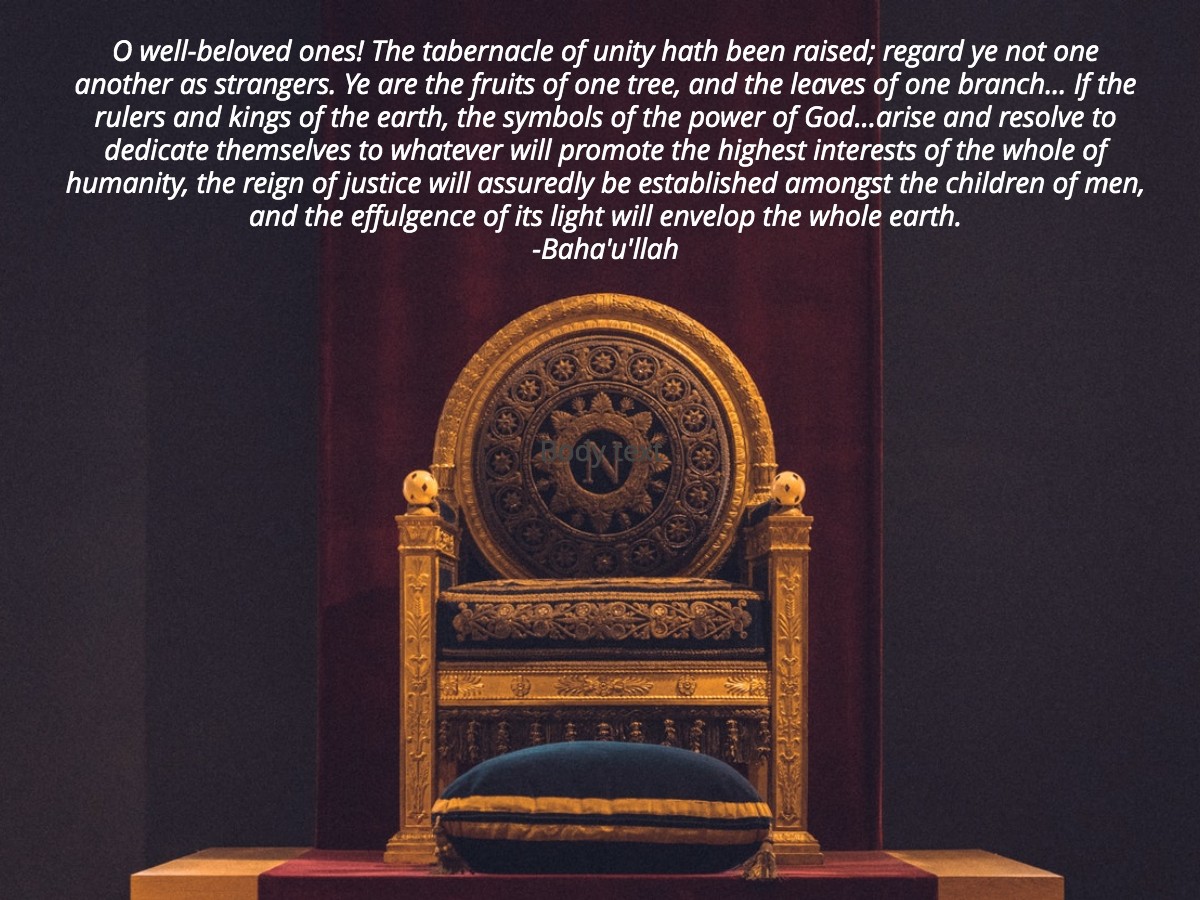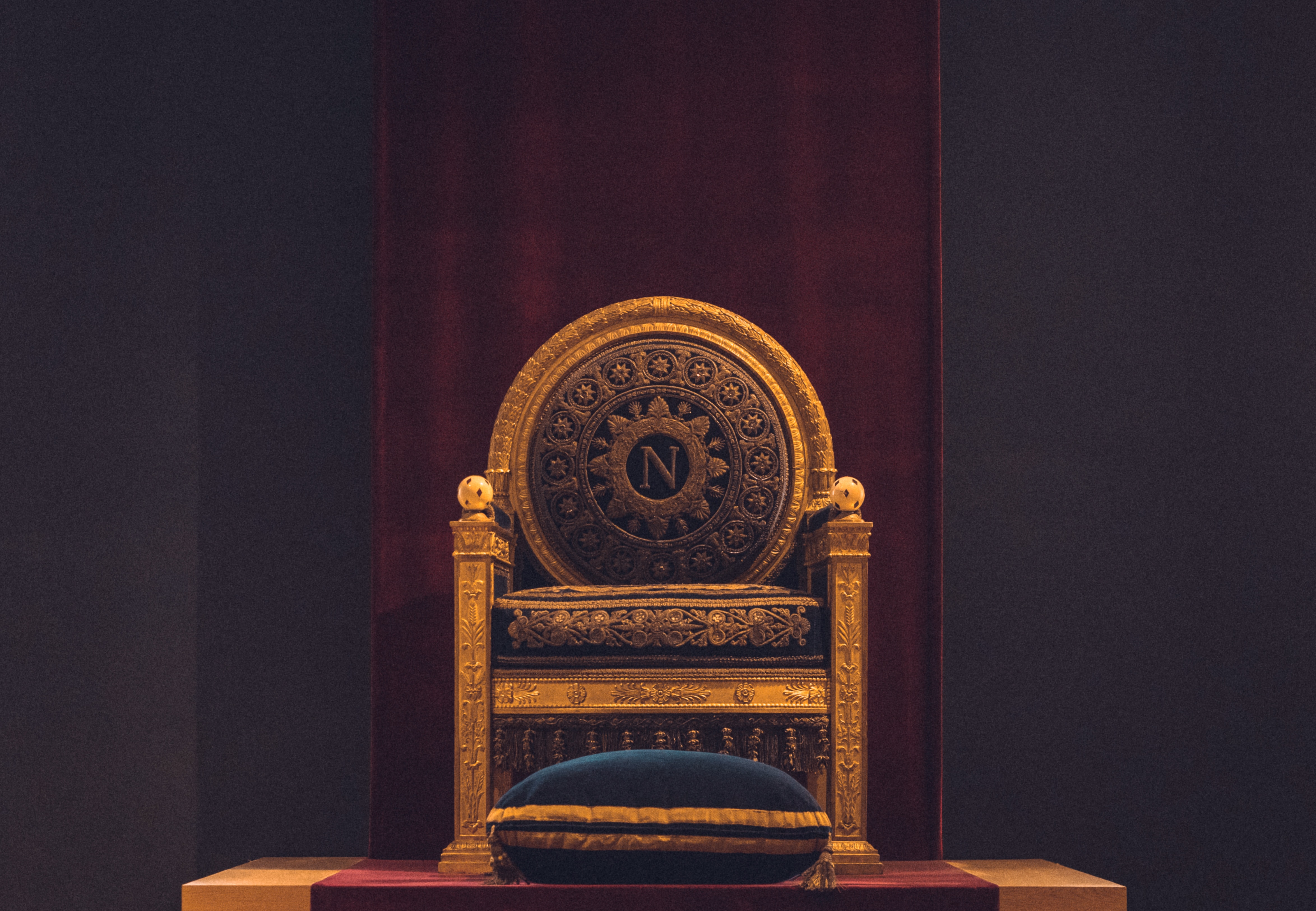This post continues our series looking at the Gospels and the Revelation of Baha’u’llah, this time focusing on the issues of Jesus’ kingship.
One of the questions that strikes you as you read the Gospels is a simple one. Why, if Christ was from God, did he allow Himself to be crucified? Of course, Christian theology throughout the centuries has taught that Christ was crucified as a ransom for the sins of humanity, and that is undoubtedly true and is reflected in Jesus’ own words. But if we look at it from the broader perspective that Baha’u’llah’s revelation brings to us, we can ask the question in a more general way. After all, it is not just Christ who has suffered when bringing a revelation, but all the Manifestations of God. Why, if God is All-Powerful, do His Manifestations allow themselves to be imprisoned, persecuted, and ignored? Couldn’t they just will their messages to be accepted by everyone? Couldn’t they, if they are from God, turn the tide on their oppressors with a simple movement of their finger?
The answer to this question is addressed in several ways by Baha’u’llah. The answers are really important to know and consider, because they set the pattern as to how God wants humans to interact with each other when it comes to religion. In a marvelous work known as the Kitab-i-Iqan, which translates from Arabic as the “Book of Certitude”, Baha’u’llah answers several theological questions put to him by the uncle of the Bab. The Bab’s uncle was perplexed by the claims of his nephew- to be a Prophet of God and the fulfillment of Islam- as he could not reconcile it with what he had been taught about how the Promised One was supposed to come. Among other issues, He could not understand how his nephew could be true if he did not become the worldly king that was expected- the one who would destroy the unjust governments of the earth and set up his own earthly kingdom that would reward believers and punish unbelievers. Instead, his nephew was imprisoned and executed, and never even showed interest in worldly authority, indeed specifically telling the Shah that it was not his intention to effect his kingship. The situation with Christ was the same- the people of that time could not understand how Christ could be the Messiah because the Messiah was supposed to be a worldly king who would see the triumph of the Jewish people. Instead, he was crucified by the Roman authorities, having no effect on the kingdom at all.
Baha’u’llah’s answer is that is that the sovereignty- the “kingship”- that the Manifestations of God exhibit is not a worldly kingship- but a spiritual kingship where they come to rule over human hearts. He emphasizes that the greatness of Jesus was not in His exhibition of worldly things, but in his detachment from them-
Thus Jesus, Son of Mary, whilst seated one day and speaking in the strain of the Holy Spirit, uttered words such as these: “O people! My food is the grass of the field, wherewith I satisfy my hunger. My bed is the dust, my lamp in the night the light of the moon, and my steed my own feet. Behold, who on earth is richer than I?” By the righteousness of God! Thousands of treasures circle round this poverty, and a myriad kingdoms of glory yearn for such abasement!
Baha’u’llah goes on to say that the “Were the Eternal Essence to manifest all that is latent within Him, were He to shine in the plentitude of His glory, none would be found to question His power or repudiate His truth. Nay, all created things would be so dazzled and thunderstruck by the evidences of His light as to be reduced to utter nothingness.”
In other words, if God were to reveal Himself with his true power, we would be forced to accept Him, and God wants to preserve human free will to make moral and spiritual decisions on our own. God intentionally reveals Himself to humanity in a form that is not one of worldly leadership and power. Indeed, the Manifestations of God come to the world “dressed in nothing but their own poverty” specifically because God does not want to be loved because he is feared. Baha’u’llah states that the reason God appears in such a condition is to bring out certain qualities in people-to act as a kind of filter- that encourages spiritual and moral qualities-
His purpose…is to enable the pure in spirit and the detached in heart to ascend, by virtue of their own innate powers, unto the shores of the Most Great Ocean, that thereby they who seek the Beauty of the All-Glorious may be distinguished and separated from the wayward and perverse. Thus hath it been ordained by the all-glorious and resplendent Pen….
That the Manifestations of Divine justice, the Day Springs of heavenly grace, have when they appeared amongst men always been destitute of all earthly dominion and shorn of the means of worldly ascendancy, should be attributed to this same principle of separation and distinction which animates the Divine Purpose…
By appearing in such a manner, the people who become attracted are not the ones who want power or wealth- the reasons many people are attracted to someone who is powerful or famous- but rather because of the beauty and virtues that the Manifestation brings into the world. Baha’u’llah tells us that this is also the reason that the prophecies of Jesus about the “end of times” cannot be interpreted literally. If Jesus were to appear literally “riding on the clouds”, nobody would dare to not believe in him- all human free will would be taken away.
Muhammad was born into poverty. His father died when He was an infant and his mother soon after. He was placed in the hands of his grandfather, who also died. Finally, He was raised by His uncle. When Muhammad starting preaching His revelation, He was initially persecuted and had to flee his home city of Mecca. Eventually however, He began to unite the various warring tribes and nations in a single community with common rules. Islam is thus somewhat different than the revelations of Christ and that of Baha’u’llah, in that Muhammad also became the leader of a growing nation, one that had worldly power. Nevertheless, Muhammad never had imperialist intentions but wanted people to accept His revelation and the teachings He brought, and apply them in their communities. Muhammad explicitly stated “There is no compulsion in religion”. He sent letters to the nations near Arabia inviting them to accept Islam but assuring Jews, Christians, and other religions that if they became part of His community, they would not be forced to convert but could worship God in their own way within His community. In a recent book that highlights the various agreements Muhammad made with the Jewish and Christian communities in the area of the growing Muslim empire, we see this principle in action. Muhammad established an agreement with the monks on Mount Sinai and addressed it to both Christians and Muslims assuring the monks of His protection:
“Whenever any of the monks in his travels shall happen to settle upon any mountain, hill, village, or other habitable place, on the sea, or in the deserts, or in any convent, church, or house of prayer, I shall be in the midst of them, as the preserver and protector of them, their goods and their effects, with my soul, aid, and protection…” (From the book, “The Covenants of the Prophet Muhammad with the Christians of the World”, By John Andrew Morrow)
Though all of the Manifestations of God have encouraged us very strongly to believe in Them, and educated us about the dangers of turning away from the truths They reveal, they have acted and spoken in a way that specifically gives us the choice, a principle Baha’u’llah says is present in all the revelations.
Baha’u’llah was extraordinarily explicit that His faith could only be spread by the power of words and example. He states that if a person responds to His message, it must come from the person themselves and never be forced in any way-
Whoso ariseth among you to teach the Cause of his Lord, let him, before all else, teach his own self, that his speech may attract the hearts of them that hear him. Unless he teacheth his own self, the words of his mouth will not influence the heart of the seeker. Take heed, O people, lest ye be of them that give good counsel to others but forget to follow it themselves. The words of such as these, and beyond the words the realities of all things, and beyond these realities the angels that are nigh unto God, bring against them the accusation of falsehood….Beware lest ye contend with any one, nay, strive to make him aware of the truth with kindly manner and most convincing exhortation. If your hearer respond, he will have responded to his own behoof…
That last sentence- “he will have responded to his own behoof”- may not be a familiar phrase to some people, but it means that the person’s response comes from their own selves and is not forced from outside.
In a remarkable passage, Baha’u’llah states that- if God wanted- he could make everyone believe whatever He wanted them to, but He wants His teachings to spread through words and heart to heart-
If it be Our pleasure We shall render the Cause victorious through the power of a single word from Our presence. He is in truth the Omnipotent, the All-Compelling. Should it be God’s intention, there would appear out of the forests of celestial might the lion of indomitable strength whose roaring is like unto the peals of thunder reverberating in the mountains. However, since Our loving providence surpasseth all things, We have ordained that complete victory should be achieved through speech and utterance, that Our servants throughout the earth may thereby become the recipients of divine good. This is but a token of God’s bounty vouchsafed unto them. Verily thy Lord is the All-Sufficing, the Most Exalted.
If you think about it, the entire “system” makes sense and is intended for our education. God doesn’t appear in a form that makes us believe in Him, but instead clothes His message in the form of beauty and virtue. That then attracts people who are attracted to those qualities, who then spread it to others. In the process of spreading it to others, people need to “teach their own selves” first- that is- manifest the qualities that God wants us to possess. Then we can only teach it through the power of our example and our words. Even then, we must ensure that the people we are trying to influence respond only because they want to respond, and not because it is forced in any way.
It is because God wants his “servants throughout the earth” to “become the recipients of divine good” that he set up the system this way. It preserves our free will, while attracting us to beauty and virtue and encouraging us to lead others to the same path. While we attempt to teach others, we ourselves learn, both how to understand our Faith more fully, but also how to be an example of its virtues. In this way, the entire world becomes elevated by the teachings and it transforms people from the inside out, rather than being forced by the outside in. If God were to appear in an outward form that was immediately convincing to everyone, or if religion were to be forced upon people, it would shortchange all the learning that can be achieved by doing it the way God has outlined.
The implications of these truths in how we think about religion in modern society are important, and it sets the tone for how Baha’i communities operate. Baha’is don’t force their faith on anyone, or try and push their standards on others, but rather seek to attract people who are interested and let them explore using their own minds and consciences. Baha’u’llah Himself taught that all people must “look into all things with a searching eye” and specifically advises us to “know of our own knowledge” and “not the knowledge of thy neighbor”, defining this as a form of “justice”:
O SON OF SPIRIT!
The best beloved of all things in My sight is Justice; turn not away therefrom if thou desirest Me, and neglect it not that I may confide in thee. By its aid thou shalt see with thine own eyes and not through the eyes of others, and shalt know of thine own knowledge and not through the knowledge of thy neighbor. Ponder this in thy heart; how it behooveth thee to be. Verily justice is My gift to thee and the sign of My loving-kindness. Set it then before thine eyes.
In a beautiful passage that will conclude this essay, Baha’u’llah outlines how He wants his followers to behave in the world and the attitude they should take towards others- that they should be a “leaven” that helps others to rise-
It is Our wish and desire that every one of you may become a source of all goodness unto men, and an example of uprightness to mankind. Beware lest ye prefer yourselves above your neighbors. Fix your gaze upon Him Who is the Temple of God amongst men. He, in truth, hath offered up His life as a ransom for the redemption of the world. He, verily, is the All-Bountiful, the Gracious, the Most High. If any differences arise amongst you, behold Me standing before your face, and overlook the faults of one another for My name’s sake and as a token of your love for My manifest and resplendent Cause. We love to see you at all times consorting in amity and concord within the paradise of My good-pleasure, and to inhale from your acts the fragrance of friendliness and unity, of loving-kindness and fellowship. Thus counselleth you the All-Knowing, the Faithful. We shall always be with you; if We inhale the perfume of your fellowship, Our heart will assuredly rejoice, for naught else can satisfy Us. To this beareth witness every man of true understanding.
Next post in this series- Liberal or conservative?

